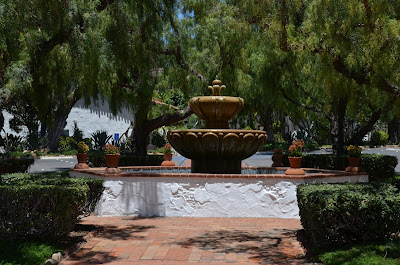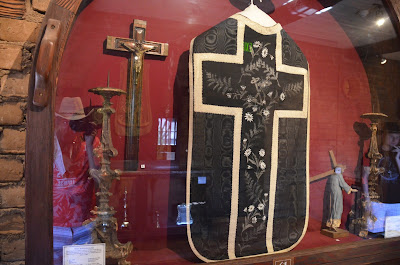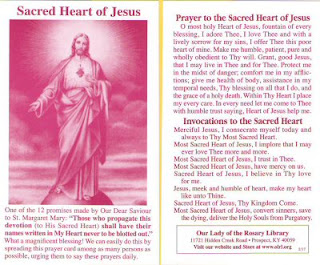Double (1954 Calendar): March 12
III Class (1962 Calendar): March 12 (2nd Class in England & Wales)
Today is the Feast of St. Gregory I (i.e., St. Gregory the Great), who ruled the Church as Pope from September 3, 590 AD until his death on March 12, 604 AD. During Lent, the Lenten feria is said with only a commemoration of the feast per the 1962 rubrics - unlike the other seasons in the Church's liturgical year. Yet even with that being the case, today is still worth reflecting on this great saint in the midst of our Lenten discipline.
Let's read what the Roman Martyrology says of St. Gregory: "Also at Rome, the raising to the Sovereign Pontificate of St. Gregory the Great. This incomparable man, being forced to take that burden upon himself, sent forth from the exalted throne brighter rays of sanctity upon the world." His contributions to the Liturgy and to the Church's official music (named Gregorian Chant after him) along with his charity will never be forgotten. He was the first pope to take the title "servant of the servants of God," and all Popes since have kept as an official title.
Dom Gueranger writes in part on him:
Among all the pastors whom our Lord Jesus Christ has placed, as His vicegerents, over the universal Church, there is not one whose merits and renown have surpassed those of the holy Pope, whose feast we keep to-day. His name is Gregory, which signifies watchfulness; his surname is ‘the Great,’ and he was in possession of that title, when God sent the Seventh Gregory, the glorious Hildebrand, to govern His Church. In recounting the glories of this illustrious Pontiff, it is but natural we should begin with his zeal for the services of the Church.
The Roman liturgy, which owes to him some of its finest hymns, may be considered as his work, at least in this sense, that it is he who collected together and classified the prayers and rites drawn up by his predecessors, and reduced them to the form in which we now have them. He collected also the ancient chants of the Church, and arranged them in accordance with the rules and requirements of the divine Service. Hence it is, that our sacred music, which gives such solemnity to the liturgy, and inspires the soul with respect and devotion during the celebration of the great mysteries of our faith, is known as the Gregorian chant. He is, then, the apostle of the liturgy, and this alone would have immortalized his name; but we must look for far greater things from such a Pontiff as Gregory. His name was added to the three, who had hitherto been honoured as the great Doctors of the Latin Church. These three are Ambrose, Augustine, and Jerome; who else could be the fourth but Gregory? The Church found in his writings such evidence of his having been guided by the Holy Ghost, such a knowledge of the sacred Scriptures, such a clear appreciation of the mysteries of faith, and such unction and authority in his teachings, that she gladly welcomed him as a new guide for her children.
The following account of his life is from the Traditional reading of Matins:
The following account of his life is from the Traditional reading of Matins:
Gregory the Great, a Roman by birth, was son of the senator Gordian. He applied early to the study of philosophy, and was entrusted with the office of prætor. After his father’s death he built six monasteries in Sicily, and a seventh, under the title of Saint Andrew, in his own house in Rome, near the basilica of Saints John and Paul, on the hill Scaurus. In this last named monastery, he embraced the monastic life, under the guidance of Hilarión and Maximian, and was, later on, elected abbot. Shortly afterwards, he was created Cardinal-Deacon, and was by Pope Pelagius sent to Constantinople, as legate, to confer with the emperor Constantine. While there, he achieved that celebrated victory over the patriarch Eutychius, who had written against the resurrection of the flesh, maintaining that it would not be a real one. Gregory so convinced him of his error, that the emperor threw his book into the fire. Eutychius himself fell ill not long after, and when he perceived his last hour had come, he took between his fingers the skin of his hand, and said before the many who were there: ‘I believe that we shall all rise in this flesh.’
On his return to Rome, he was chosen Pope, by unanimous consent, for Pelagius had been carried off by the plague. He refused, as long as it was possible, the honour thus offered him. He disguised himself and hid himself in a cave; but he was discovered by a pillar of fire shining over the place, and was consecrated at Saint Peter’s. As Pontiff, he was an example to his successors by his learning and holiness of life. He every day admitted pilgrims to his table, among whom he received, on one occasion, an angel, and, on another, the Lord of angels, who wore the garb of a pilgrim. He charitably provided for the poor, both in and out of Rome, and kept a list of them. He re-established the Catholic faith in several places where it had fallen into decay. Thus, he put down the Donatists in Africa, and the Arians in Spain; and drove the Agnoites out of Alexandria. He refused to give the pallium to Syagrius, bishop of Autun, until be should have expelled the Neophyte heretics from Gaul. He induced the Goths to abandon the Arian heresy. He sent Augustine and other monks into Britain, and, by these learned and saintly men, converted that island to the faith of Christ Jesus; so that Bede truly calls him the Apostle of England. He checked the haughty pretensions of John, the patriarch of Constantinople, who had arrogated to himself the title of bishop of the universal Church. He obliged the emperor Mauritius to revoke the decree, whereby he had forbidden any soldier to become a monk.
He enriched the Church with many most holy practices and laws. In a Council held at St. Peter’s he passed several decrees. Among these, the following may be mentioned: That in the Mass the Kyrie eleison should be said nine times; that the Alleluia should always be said, except during the interval between Septuagesima and Easter. That these words should be inserted in the Canon: Diesque nostros in tua pace disponas (And mayst thou dispose our days in thy peace). He increased the number of processions (litanies) and stations, and completed the Office of the Church. He would have the four Councils, of Nicea, Constantinople, Ephesus, and Chalcedon, to be received with the same honour as the four Gospels. He allowed the bishops of Sicily, who, according to the ancient custom of their Churches, used to visit Rome every three years, to make that visit once every fifth year. He wrote several books; and Peter the deacon assures us, that he frequently saw the Holy Ghost in the form of a dove resting on the head of the Pontiff, while he was dictating. It is a matter of wonder that, with his incessant sickness and ill health, he would have said, done, written, and decreed, as he did. At length, after performing many miracles, he was called to his reward in heaven, after a pontificate of thirteen years, six months and ten days; it was on the fourth of the Ides of March (March 12), which the Greeks also observe as a great feast, on account of this Pontiff’s extraordinary learning and virtue. His body was buried in the basilica of Saint Peter near the secretarium.


























